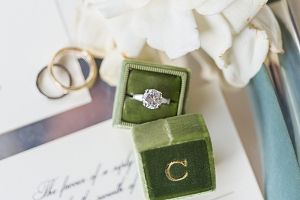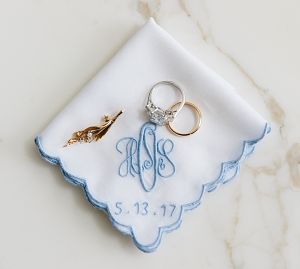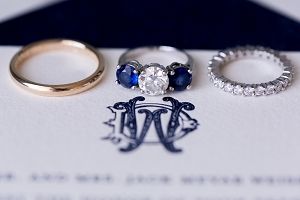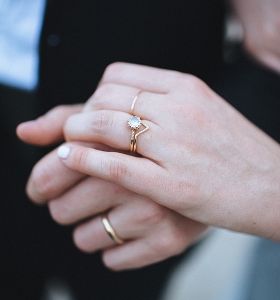
Congratulations, you’re engaged! Maybe you’ve already jumped head first into the planning process and started looking at venues; brownie points if you’ve begun your quest for the perfect dress early. Regardless of how many items you’ve checked off your to-do list, one thing you probably haven’t given much thought to post-proposal is how to protect that shiny new ring on your finger. And we don’t blame you, who wants to compare insurance companies when you can be tasting cakes?
If you think the chances of losing your engagement ring are small, think again. Earlier this year, Paris Hilton misplaced her two million dollar, 20 carat diamond ring while partying at a Miami night club. (Someone later found it in an ice bucket at a table nearby and it was returned to its rightful owner.) And sure, while most of us aren’t walking around with multi-million-dollar rocks on our hands, all engagement rings are still incredibly valuable to each of us both monetarily and emotionally.

For more information on the topic of insurance, we went to the experts, a.k.a. Jewelers Mutual Insurance Group, a company that has solely focused on insuring jewelry since 1913. Unlike homeowners or renter’s insurance, which covers some of your valuables in some cases, Jewelers Mutual ® replaces or repairs precious jewelry in all kinds of scenarios including loss, theft, damage, mysterious disappearance, or natural disaster.
Let’s begin with a downright frightening scenario: What would you do if you lost your ring and didn’t have insurance? For starters, we’re guessing a full-fledged panic attack would take place, followed by a scramble to search for it, and then the sad realization that it’s gone. (Especially if the ocean is involved. Trust us, we know from experience. We won’t name names, but someone’s husband on the OTM team likes to swim with his wedding ring on, and often doesn’t come back with it.) If this happens, you then have three options: Either buy a new ring similar to your old one (ouch!), find another less expensive ring that might not look like your original one at all, or bite the bullet and leave your ring finger bare. (We know, we know—the options aren’t great.)

Now let’s talk about how this would go down if you’d taken the time to insure the ring at the onset. While many insurance companies would simply reimburse your coverage limit (typically $1500-$2500 or the appraised value of your piece if you purchased a rider) Jewelers Mutual is different. They work with your preferred jeweler (be it a major retailer like Tiffany or a small, family jewelry shop) to get you as close of a match to your original diamond ring as they can. After all, it’s not just the dollar value you’re looking to re-coup, but the sentimental one, as well.
With all the costs that go into planning a wedding, you may feel like insuring your ring is one line item you can cut, especially if you’re really, really careful. But in actuality, insuring your engagement ring will barely make a dent in your yearly budget. According to Jewelers Mutual, most clients pay only 1 – 2% of the value of the ring a year. For example, if you have a $5,000 engagement ring, your annual cost will be around $50 – $100. Spending less than $10 a month to protect something that traditionally costs three months’ salary seems like a smart move.

So before jetting off on your honeymoon, consider if it’s worth worrying about losing your ring in the sand or having it slip off during a bath—remember when Kim Kardashian lost one of her diamond earrings in the ocean during that vacation in Bora Bora, and all hell broke loose? Or if it’s better to insure one of your most prized possessions and gain some peace of mind while you’re off enjoying one of the best trips of your life? Conveniently, Jewelers Mutual offers worldwide coverage, meaning your ring is protected even when you’re off gallivanting around Europe or Asia. (It also wouldn’t hurt to read their guide on traveling with jewelry just to play it extra safe.) Go ahead and add it as another checklist item on your wedding planning to-do list. You won’t regret it—just ask Kim.
This post is sponsored by Jewelers Mutual Insurance Group. All opinions expressed are those of the author.













